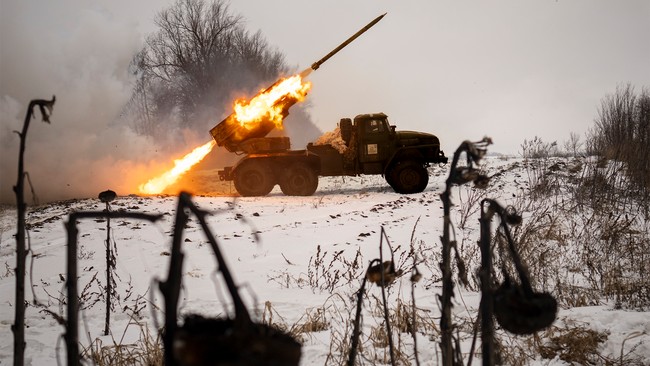
European Union authorities have agreed to send about $3 billion in frozen Russian assets to Ukraine on Wednesday in the latest escalation with the Kremlin.
The frozen assets will be used to purchase weapons for Kyiv and fund reconstruction efforts for Ukraine, after strong pressure from Washington to do more.
After the Russian invasion in February 2022, Brussels froze $250 billion in assets belonging to the central bank in Moscow that were stored at the Euroclear depositary in Belgium.
The G7 nations, under pressure from the United States, agreed to send seized Russian deposits held in the West to support Kyiv, as its military situation becomes increasingly desperate.
The House of Representatives earlier voted to approve a bill to send $95 billion in Russian assets held in the United States to Ukraine.
EU diplomats greenlighted the proposal to send some of the cash held in Belgium to Ukraine after Brussels agreed to a compromise on how much tax revenue it could collect on the frozen deposits.
Belgian policymakers had long proposed sending some of the interest collected on the funds, which is estimated to be about $3.2 billion a year, as military aid to Ukraine.
About $1 billion out of $1.7 billion in existing tax revenues from profits, had already been pledged by Brussels to Ukraine via a national fund, reported Politico.
“The money will serve to support #Ukraine‘s recovery and military defence in the context of the Russian aggression,” tweeted the Belgian government.
Ninety percent of the pledged amount will be used to buy weapons, while 10 percent will be spent on non-military aid.
Belgium also gained a concession during negotiations, which reduced the handling fees that Euroclear charges on the frozen assets to 0.3%.
Other concessions to members of the bloc like Austria, Ireland, Malta, and Cyprus allow them to opt out of buying weapons and instead limit assistance to humanitarian aid.
European Commission President Ursula von der Leyen said that Ukraine could receive the first funds under the new agreement by July.
EU foreign ministers also formally agreed to a separate proposal that would give Kyiv $53 billion in grants and loans in exchange for certain reforms.
However, Ukrainian officials said that the plan does not go far enough and that Brussels must confiscate all Russian assets to make sure that Moscow will pay for the cost of war.
Some European economists are concerned that sending the frozen assets to fund the Ukrainian war effort, could harm the bloc’s reputation as a safe place for other nations to store their currency and thus set a dangerous precedent.
EU officials will continue working on ironing out the final agreement in preparation for its expected passage on May 15.
